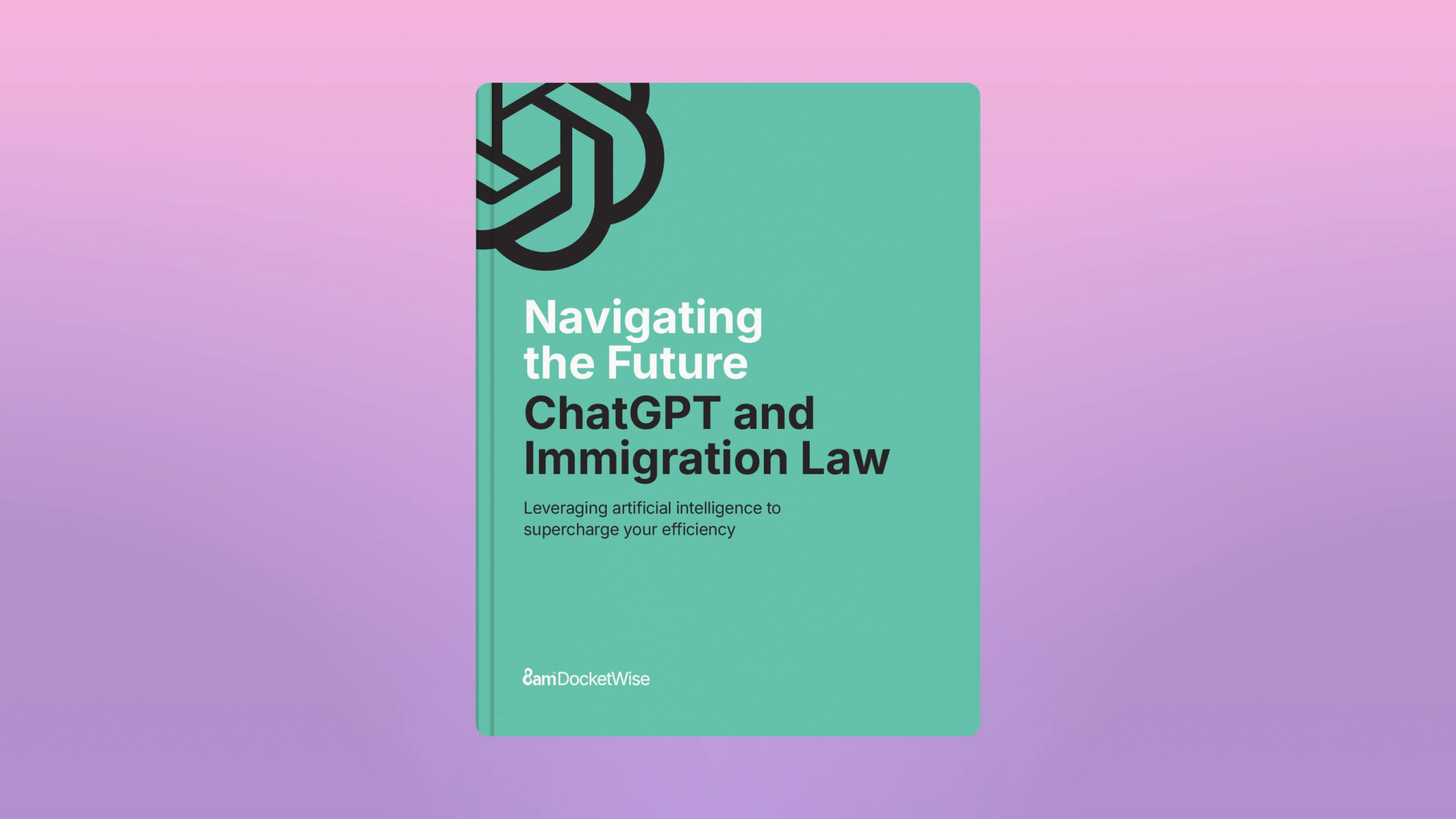Making sure your client's documents are translated correctly and meet USCIS (United States Citizenship and Immigration Services) standards is a prerequisite for a successful submission. Using reliable and professionally competent translation services to obtain English translation documents that comply with USCIS requirements for documents in foreign languages is not just about getting everything right for immigration lawyers and their clients. It’s about avoiding problems that can happen if you submit translations that aren't properly certified.
Failing to obtain properly certified, accurate, and complete translations means that the applicant you are helping can face serious issues like application delays , Requests for Evidence (RFEs), or even rejection of their application. These setbacks can be very frustrating for clients and even jeopardize the ultimate success of the case. Translations that come with a Certificate of Translation, comprising a statement of accuracy and details about the translator's qualifications, help avoid these problems by making sure all translations meet USCIS standards from the start.
In short, USCIS-compliant immigration translation services provide a dependable solution for everyone involved in the immigration process, from individuals to legal professionals.
Key Takeaways
Certified Translations Are Essential: All non-English documents submitted to USCIS must come with certified English translations and include a Certificate of Translation.
Avoid Delays and Rejections: Using properly certified translation services helps prevent delays, Requests for Evidence (RFEs), and application rejections due to translation mistakes.
Certified Translation Requirements: The Certificate of Translation must include the translator’s name, address, and signature, confirming that the translation is accurate and complete.
Professional Translators Recommended: While USCIS allows self-translations, it’s best to use professional translators to ensure accuracy, objectivity, and compliance with USCIS standards.
Types of Documents Needing Translation: Common documents that require certified translations include civil documents (e.g., birth certificates), legal documents (e.g., divorce decrees), educational records, financial documents, employment papers, travel documents, and court or prison records.
Choose Reliable Translation Services: When selecting a translation service, make sure it understands USCIS requirements, has strong client reviews, offers quick turnaround times, and upholds strict privacy policies.
Docketwise Translation Assistance: Docketwise helps immigration lawyers with translation needs through smart form questionnaires and its integration with ImmiTranslate, making client communication and document translation easier.
Compliance is Crucial: Always use professional translation services that meet all USCIS regulatory standards to ensure compliance and avoid problems in the immigration application process.
What are USCIS-compliant Immigration Translation Services?
USCIS requires that any documents in a foreign language submitted as part of an immigration application must be accompanied by a full English translation. This translation must be certified, meaning it includes a statement, called a Certificate of Translation, that verifies the translation is accurate, complete, and adheres to the other regulations such as following the exact format of the original document.
The Certificate of Translation must include the translator’s name and address, as well as the translator’s signature attesting that he or she is competent to translate from the specific foreign language of the original document into English. If the translation does not meet these standards, it can lead to delays, requests for additional information, or even rejection of the application or a decision by USCIS to deny the case.
Immigration translation services that are USCIS-compliant provide accurate translations of documents from a foreign language into English. These services are designed to meet the specific requirements set by USCIS. And, they play a vital role in the immigration process, ensuring that USCIS accepts all documents and considers them when adjudicating the case.
Each translation comes with a certification that confirms it is complete, accurate, and done by someone fluent in both languages.
When you use USCIS-compliant certified translation services, you can enjoy benefits like having :
A translator who is fluent in both the original language and English ensures the translation is accurate and captures the meaning of the original document.
A signed statement, known as a Certificate of Translation, verifies that the translator is qualified and that the translation is true and accurate. It must contain the name, address and signature of the translator.
A copy of the original document must be identical in all respects, including preserving any legal seals, signatures, and layout.
These services benefit both applicants and immigration lawyers. For clients, this means peace of mind that all of their important evidence is being considered by USCIS when processing their case. For immigration lawyers, it means added confidence that their cases will move forward without avoidable setbacks due to translation errors.
Why Use Certified Immigration Translation Services for USCIS Applications?
Using a certified translator for USCIS applications is crucial to ensure everything is done correctly. As we have established, a certified translator makes sure that the translations are accurate and fully meet USCIS guidelines.
If you use non-certified translations, you might face delays, requests for more information, or even rejection of your client's application. These problems can be costly and take up valuable time. That's why it is so important to use certified translators who can guarantee the translations are correct and acceptable.
USCIS-certified Immigration Translation Requirements
We have touched on the regulations, but let’s take a closer look at the specific requirements translators must follow when providing USCIS-compliant certified translation services.
1. Complete and Accurate Translation
Every part of the original document must be translated, including notations, stamps, seals, and signatures. The translation should closely follow the original document's format to ensure USCIS can easily compare the two.
2. Certification by the Translator
The USCIS translator provides a signed Certificate of Translation. This certificate declares that the translator is competent in both the source and target languages and that the translation is a true and accurate representation of the original document. The certified translation for immigration documents includes the translator’s name, signature, contact information, and the date of the translation.
3. Self-Translation Not Recommended
Although USCIS policy doesn’t specifically prohibit applicants from translating their own documents, provided they are fluent in the source and target languages and submit the required Certificate of Translation, it is preferable to have a professional translator do all translations to ensure objectivity and accuracy.
4. Notarization (Optional)
While USCIS does not require translations to be notarized, some applicants choose to notarize their translations for added assurance, particularly for sensitive or crucial documents. However, this is optional and not required by USCIS.
Which Documents Require Certified Translation
Here’s a general overview of the types of documents that typically require certified translations:
Civil Documents
These include birth certificates, marriage certificates, and death certificates. They are some of the most common documents that require translation as they serve as primary proof of identity, relationships, and legal status.
Legal Documents
Documents like divorce decrees, adoption papers, and criminal records need certified translation. These documents are critical for proving legal actions such as changes in marital status to verify compliance with the eligibility criteria for immigration benefits and are reviewed closely by USCIS.
Educational Documents
Diplomas, academic transcripts, and other educational certificates often require translation. These documents are particularly important for immigration processes involving student visas, employment-based visas, or proving qualifications for certain statuses.
Financial Documents
Financial statements, bank account records, and property deeds that are not in English need certified translations for submission to USCIS in connection with immigration cases. These documents are essential for demonstrating financial stability or proving assets in various types of cases.
Employment Documents
Labor contracts, proof of employment, and letters from employers are among the documents that may require certified translation. These documents support immigration benefits applications, visa applications, and other types of immigration cases that require verification of work history, current employment status, or reference letters from employers or colleagues.
Travel and Identification Documents
Passports, visas, identity cards, and other similar documents often need to be translated if they are in a foreign language. These documents are essential for establishing travel history and identity.
Court and Prison Records
Court records and prison records are necessary and must be translated for individuals who have been arrested or involved in other legal proceedings in foreign jurisdictions. This is especially important for those who must disclose past convictions or other pertinent legal issues in their immigration applications.
Who Can Translate Immigration Documents?
In theory, anyone who is fluent in both the source language and English could translate a document. However, we’ve established that it's not just about translating the content well with USCIS submissions. The translation must meet specific standards, which include a Certificate of Translation specifically formatted to adhere to USCIS requirements.
While someone might translate a document accurately, USCIS requires that the translation be accompanied by a Certificate of Translation, which includes a statement that the translator is competent to translate the document and that the translation is complete and accurate. This certification must also include the translator's name, signature, and contact information.
Overall, it’s always better to go to a professional translator who can provide correct certified translations to ensure a smooth and pleasant process.
Tips for Finding a Certified Translation Provider
If you are wondering how to find certified immigration translation services to get the job done right, we have some tips for you.
When looking for a translation service provider, it’s important to find one that is reliable and experienced. Start by checking reviews or testimonials from previous clients to get an idea of the service's quality and reliability. You can also ask for samples of previous translations to see the quality of their work.
Make sure the service is familiar with USCIS requirements and can provide certified translations with the necessary documentation. Confirm the turnaround time, especially if you are working under tight deadlines. Be cautious of services that promise very fast translations at low prices, as they may not maintain high standards. Lastly, ensure that the provider has robust privacy policies in place to protect sensitive client information.
Translate Client Intakes with Docketwise
Immigration document translation services can help both lawyers and their clients. However, you sometimes need to work faster to help clients quickly.
Docketwise offers translation assistance that helps immigration lawyers with client intakes. This feature translates Docketwise’s smart form questionnaires from multiple languages (currently eleven) and is designed to assist with client communication and efficiently collect client data.
Docketwise also offers an integration with ImmiTranslate, an online provider of high-quality certified translations for document translations. Through this integration, users and their clients can upload documents to Docketwise, and Docketwise will submit the documents to ImmiTranslate for you. Once the translation is completed and approved, ImmiTranslate will then automatically send the translated documents back to your Docketwise account. These translated documents will be automatically sent to the client if all documents in that request are related to the same matter/client on your Docketwise account.
For legal documents that require certified translations for USCIS submissions, always use a professional translation service (such as ImmiTranslate) that meets all regulatory requirements. This ensures compliance and avoids issues that can arise from using non-certified translations.
Start enjoying the features every immigration lawyer wants and needs, and schedule your demo today.
Transform Your Practice with ChatGPT
Discover how AI, particularly ChatGPT, can revolutionize your practice, from automating tasks to mastering effective prompting.
Download Now
About the author

Catherine Brock
Catherine Brock is a Content Writer for leading legal software companies, including MyCase, Docketwise, and CASEpeer, as well as LawPay, the #1 legal payment processor. She covers emerging legal technology, financial wellness for law firms, the latest industry trends, and more.
